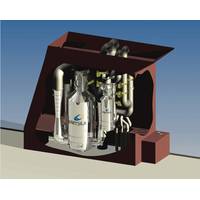Bunker Delivery Note Amendments Enter into Force
Amendments to the bunker delivery note relating to the supply of marine fuel oil to ships which have fitted alternative mechanisms to address sulphur emission requirements entered into force on 1 January 2019.According to a press release from International Maritime Organization (IMO), the amendment enters into force as the shipping industry counts down to 1 January 2020, when the limit for sulphur in fuel oil will be reduced to 0.50% m/m outside emission control areas (ECAs), from 3.5%…
SEA\LNG Voices Support for MEPC 73 Outcomes
SEA\LNG, the multi-sector industry coalition aiming to accelerate the widespread adoption of liquefied natural gas (LNG) as a marine fuel, strongly supports the decision of the Marine Environment Protection Committee (MEPC) to reaffirm the January 1, 2020 implementation date of the 0.50% sulphur fuel limit.SEA\LNG said in a press release that it also applauds the adoption of the amendment to MARPOL Annex VI for a carriage ban on non-compliant fuels for vessels without an approved equivalent arrangement to meet the sulphur limit – such as an exhaust gas cleaning system (EGCS) on March 1…
Carriage Ban Adopted to Implement Sulphur 2020 Limit
An amendment to support consistent implementation of the forthcoming 0.50% limit on sulphur in ships fuel oil was adopted by the International Maritime Organization (IMO) on Friday (26 October), during the current session of the Marine Environment Protection Committee (MEPC 73).The new 0.50% limit (reduced from 3.50% currently) on sulphur in ships' fuel oil will be in force from 1 January 2020, under IMO's MARPOL treaty, with benefits for the environment and human health.The complementary…
Hapag-Lloyd on 2020 Low Sulphur Fuel
LSF2020 refers to the new “Low Sulfur Fuel” regulations, which will come into effect on 1 January 2020.These regulations are the biggest of a series of steps by the International Maritime Organisation (IMO) to reduce marine pollution (MARPOL) in response to the threat of climate change.The LSF2020 emission regulations mean ships will have to significantly reduce emissions on the high seas as well as in coastal areas. This change does not only concern Hapag-Lloyd but it challenges the entire shipping industry.
Wärtsilä Performs Exhaust Gas Clean Retrofit

Wärtsilä was contracted by TT-Line to retrofit an exhaust gas cleaning system to its RoPax vessel, M/S Robin Hood, as part of TT-Line’s Green Ship strategy. The full turnkey project will be managed by Wärtsilä, and the vessel will be fitted with four Wärtsilä Hybrid Scrubber Systems designed to reduce sulfur oxide (SOx) and particulate emissions from the ship’s exhaust. The ferry operates in the Sulfur Emission Control Area (SECA) between Travemünde, Germany and Trelleborg, Sweden. The Wärtsilä systems will enable compliance with the SECA regulations, as well as with anticipated future legislation.
